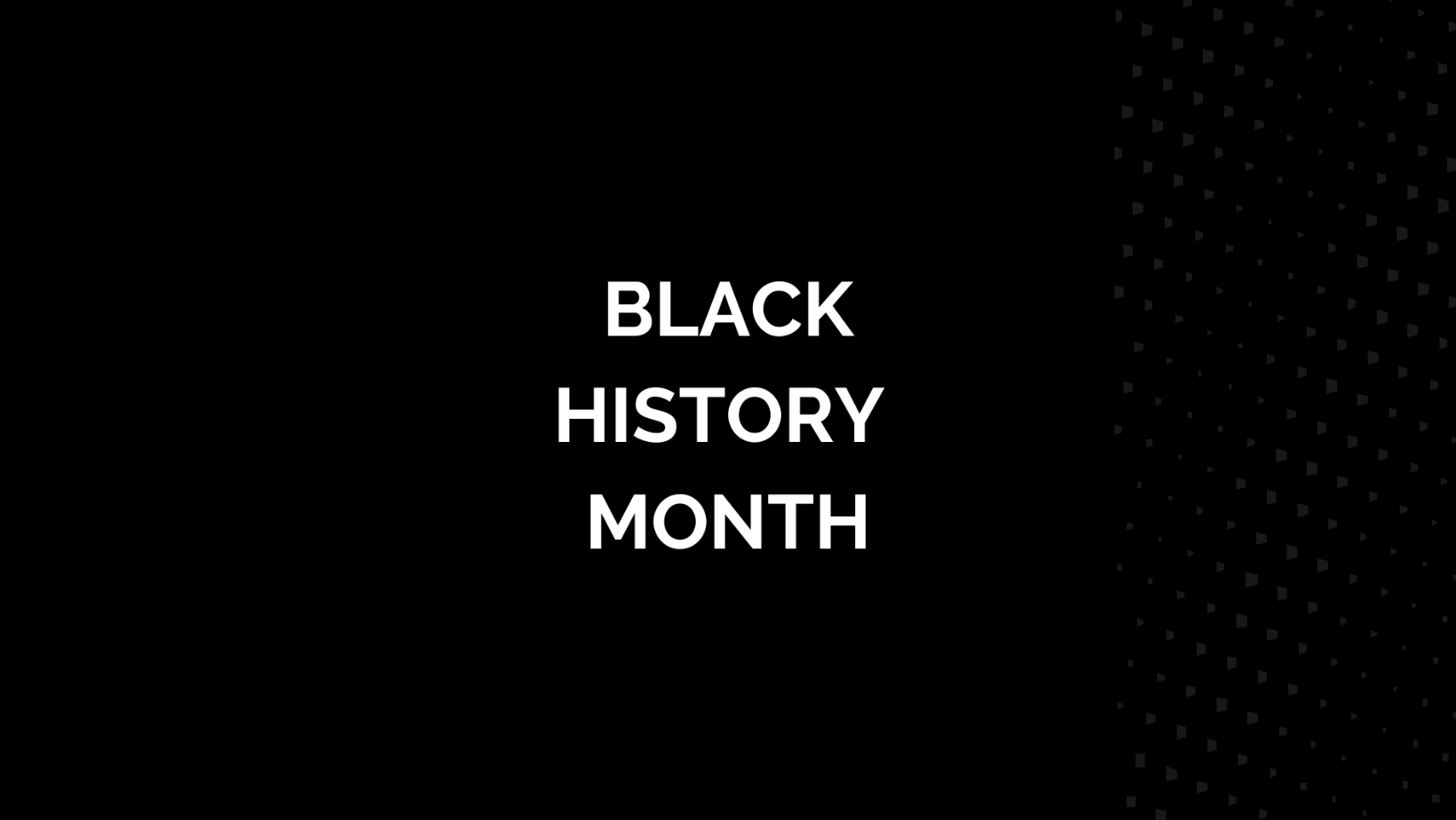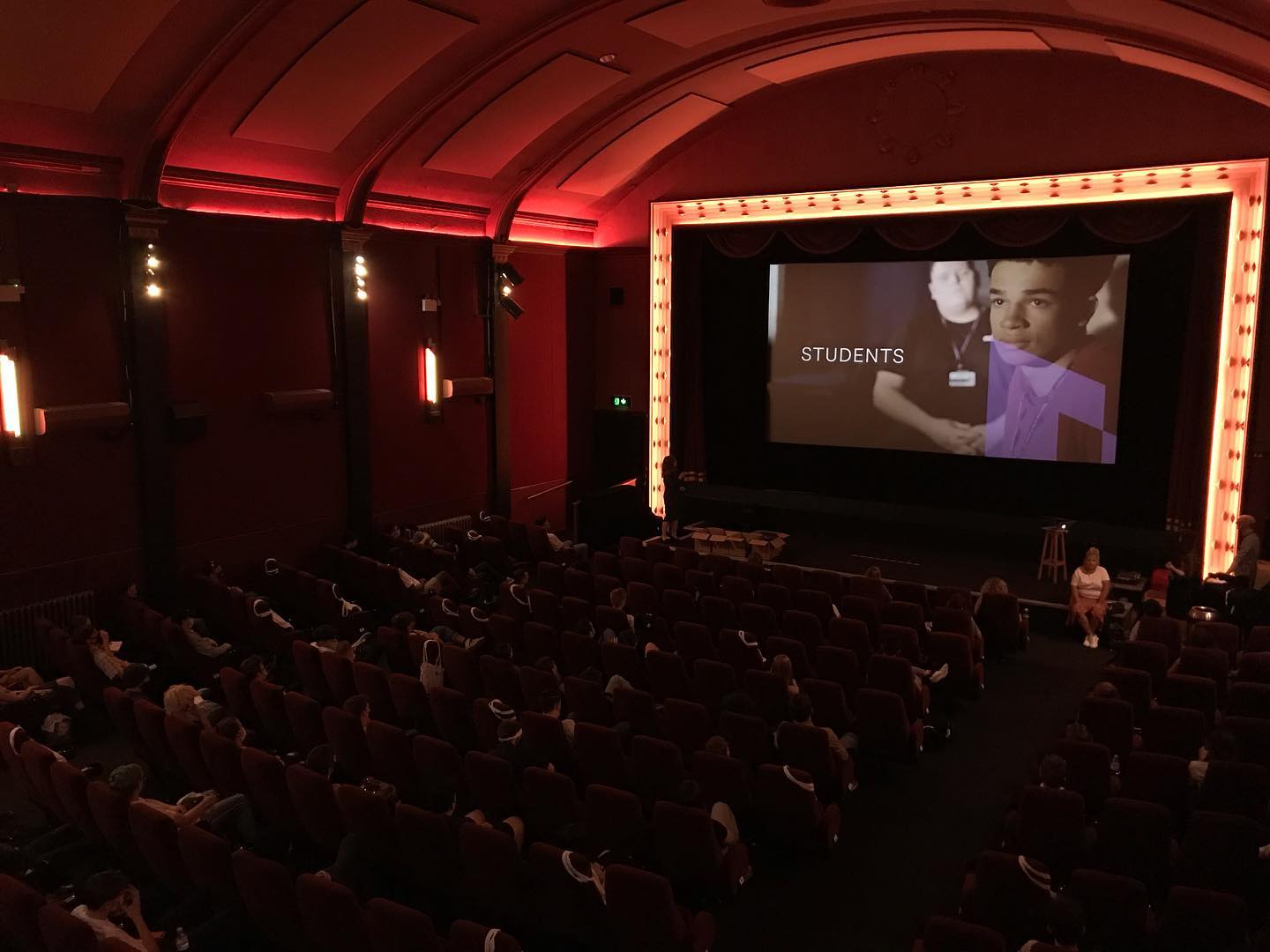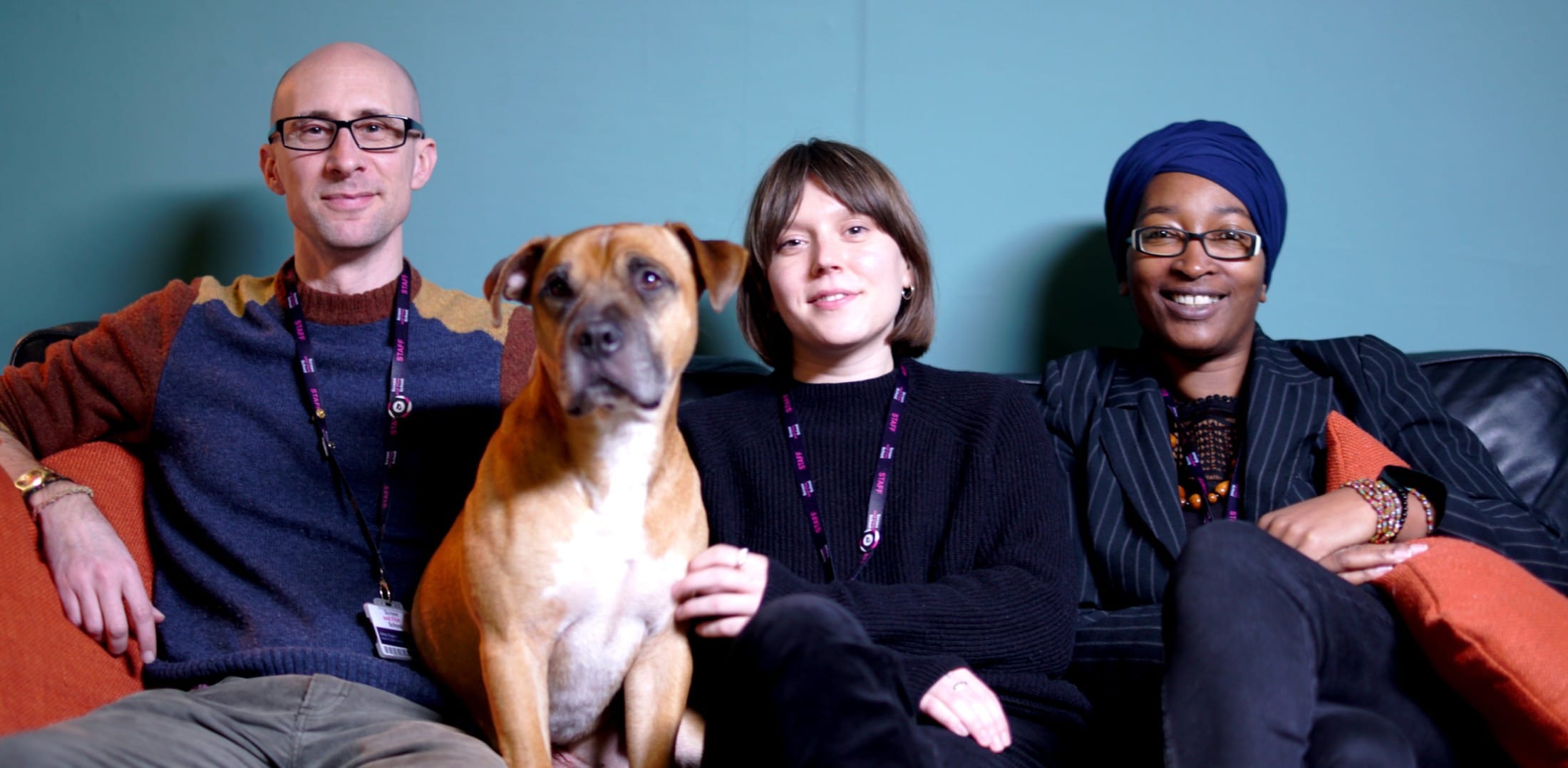At Screen and Film School, we’ve been celebrating Black History Month across all our campuses and considering its theme for 2022 – Time for Change: Action Not Words. The importance of the contributions and visibility of the black community is vital to both our education syllabus and the past, present and future of the screen and film industry.
Here we speak to current students, lecturers, as well as expert masterclass guests from our three schools about why this topic is important to them, how it shapes and influences their work, both behind and in front of the camera.
“The reason I think it’s really important to celebrate Black History Month, from a totally selfish point of view, if we don’t have exposure to the fantastic work that black filmmakers create then we are missing out. The theme for Black History Month, Time for Change: Action Not Words, really resonates with me and all the staff and students, as that’s what we formed the Inclusivity Action Group on, not just talking, actually doing something. It’s a whole school approach, and that is something I’m particularly proud of because it isn’t about just one or two individuals, this isn’t simply about us ticking boxes.”
– Itziar Leighton, College Principal, Screen and Film School Brighton
“Black History Month is important to Screen and Film School because history is absolutely vital in informing the present. People from African and Caribbean backgrounds have been a fundamental part of British history for centuries, so this is an important opportunity to understand the heritage of black history and culture.”
– David Thompson, College Principal, Screen and Film School Manchester

Anthony Vander – Brighton Lecturer
“What I’d like to see in the industry in the next five years is a championing of a much more diverse and inclusive environment and there needs to be an immediacy with that. As students, as human beings, we should be opened up to different communities, and different stories beyond our own. I’ve been working with the Film in Colour Society at Screen and Film Schol Brighton, to create much more inclusive, diverse films, which are reflective of what is going on today. Not every institution does that. Inclusivity can often be used as a buzz word, but I would encourage any student to apply to Screen and Film School, as they make an active effort to implement change. Not just words – but action.”
– Anthony Vander, lecturer, Screen and Film School Brighton
“At Screen and Film School, we’re aware that for lots of students starting university can be an individual’s first experience learning about different cultures and backgrounds. As an educational institution, especially working in an industry that has such an imbalance of representation, it’s our duty to amplify voices, and share perspectives that challenge cultural norms. As part of our Black History Month celebrations, we held a screening of the 1980 British Drama Babylon, directed by Franco Rosso.
The film highlights racial tensions in 1980’s London and cultural moments such as the tension between the Afro-Caribbean community and their experiences of police brutality. The film gives a voice to a significant side of history, that we still don’t hear much about in the mainstream. This is a great chance to not only educate students on unseen British history, but also encourage them to seek out films that tackle similar subjects outside of months dedicated to a cause.”
– Clara Thomas, Access and Participation Officer, Screen and Film School Manchester
“I think diversity in the industry is vital. There needs to be more inclusion, as it encourages more black people who want to make films to do it. I think it can be daunting for us if there’s not a lot of other black people in our community, as there may be black people out there who want to make films and be a part of them. There needs to be a way into the industry for black people in a way where we won’t feel we’re going to have to struggle a lot more than others.”
– Lauren Edmeade, student, Screen and Film School Birmingham

Lauren Edmeade – Birmingham student
“There is an importance, especially in the UK, for the media industries to recognise the unwavering contribution that black people have made to screen and television. In today’s climate, there are more faces of colour appearing on our screens across multiple platforms – this shows a positive indicator that the general public are accepting our culture, we are here to stay. However, there is a need to train and encourage black people that behind the camera is a wealth of opportunities for young people to prosper, grow and become part of the ever-changing face of British creative output.”
– Dr Pogus Caesar, masterclass guest, Screen and Film School Birmingham.

Mya Williams – Birmingham student
“I think Black History Month plays a key part in my journey as a filmmaker because I feel I don’t see enough representation of myself in media. As a black, queer person, I rarely see positive representations of myself in film and I aim to show black queer joy in my films without the added trauma that often comes with these stories.”
– Mya Williams, student, Screen and Film School Birmingham
“Visibility of the black community in front and behind the camera is absolute essential, not just for the obvious forefront diversity issues we are facing as a nation, but for the aspirations of young black filmmakers who are following in the footsteps of those that have gone before them. Being able to see someone that looks like you do something that may feel impossible can literally be the difference between confidently pursuing a career or not. You can’t cross a finish line you can’t see, and you can’t realise a dream you can’t dream!”
– Daniel Alexander, masterclass guest, Screen and Film School Birmingham

Daniel Alexander – Masterclass guest
“I believe it’s important to see black creators, as it sets an understanding that there’s longevity in the film industry. From attending our regular masterclasses, I am conscious there will be several times where I must become like the salmon: stay headstrong, swim upstream and go against the grain in pursuit of my black excellence. As a guy growing up in inner city Birmingham, it’s home to people from all walks of life; serving as a great cultural intersection for motivated creators to express, network and develop.”
– Reuel McFee, student, Screen and Film School Birmingham
Reuel’s powerful thoughts are a perfect way to summarise the approach that everyone at Screen and Film School have taken this month to celebrate and embrace Black History Month.
A big thank you to all the people who have contributed their heartfelt messages, experiences and hopes for the future.
Are you interested in being a part of the new legacy at Screen and Film School?
Sign up to one of our Open Days:
Find out more information on our courses by clicking below:



